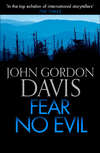Читать книгу: «Seize the Reckless Wind», страница 3
Mahoney turned grimly towards the swimming pool. And, oh, he did not want to emigrate. He did not want to leave this marvellous land and go and live with the Aussies, where there was nothing important to do except make money. …
Suddenly he realized something had changed. He stopped and listened. Then he realized: the singing had stopped.
Not a sound, but the insects. Automatically, he wanted his rifle. He turned and started towards the labour compound, through the orchards.
From fifty yards he could see the huts. He stopped amongst the eucalyptus. He could see his labourers around the fire, their wives and children, silent, staring. He walked closer.
An old man was kneeling near the fire. In the dust were some small bones. Mahoney had never seen the man, but he knew what he was. He was a witchdoctor.
Mahoney stood there. What to do? The practice of witchcraft was a crime, but he did not like to interfere in tribal customs. He stood in the darkness, waiting for the man to speak: then his foreman glanced up. ‘Mambo …’ he murmured.
Everybody turned, eyes wide in the flickering firelight.
Mahoney called, ‘Elijah, please come to my house.’
He turned. The old foreman followed him.
Mahoney walked back through the trees, and stopped outside the kitchen. Elijah came, smiling uncomfortably. Mahoney clapped his hands softly three times, then shook hands. He spoke in Shona: ‘I see you, old man.’
‘I see the Mambo,’ Elijah said, ‘and my heart is glad.’
‘I have returned and my heart is glad also.’
Mahoney squatted on his haunches. Elijah squatted too, and they faced each other for talk as men should. And the ritual began. It was an empty ritual because Elijah knew the Nkosi had seen the witchdoctor, but it was necessary to say these things to be polite. ‘Are your wives well, old man?’
‘Ah,’ Elijah said, ‘my wives are well.’ The Nkosi did not have any wives, so Elijah said: ‘Is the Nkosi well?’
‘I am well. Is Elijah well?’
‘Ah,’ Elijah said, ‘I am well.’
‘Are the totos well?’
‘Ah,’ said Elijah, ‘the totos are well.’ The Nkosi did not have any children, so Elijah said: ‘Does the Nkosi sleep well?’
‘I sleep well. Does Elijah sleep well?’
Ah, Elijah slept well. Are the cattle well? Ah, the cattle were well; but there is drought. Are your grain huts full? Ah, there is drought, but there was grain in the huts. Are your goats well? Yes, the goats were well …
Everything was well. Business could begin. ‘Old man, is there sickness in the kraal?’
Elijah knew what was coming, and he looked uncomfortable. ‘There is no sickness, Nkosi.’
‘Are any of the wives barren?’
Elijah said, ‘The wives are not barren, Nkosi.’
‘Are there any witches living amongst us?’
‘Ah!’ Elijah did not like to talk about witches. ‘I know nothing of witches, Nkosi.’
Mahoney sighed. Once upon a time he had been a young Native Commissioner in charge of an area the size of Scotland or Connecticut. How many men had he sent to jail for this?
‘Old man, there are no such things as witches who cast spells to make people ill, or barren, or their cattle sick, or their crops to die. There are no such people as witches who ride through the sky on hyenas in the night.’ He made himself glare: ‘And it is a crime to consult a witchdoctor to smell out a witch, because stupid people believe him, and they banish the woman he indicates, and she is homeless. And very often she takes her own life. That is a terrible thing, old man!’
Elijah said nothing.
Mahoney breathed. ‘The cattle are thin.’ He looked up at the cloudless sky. ‘How much have you paid the witchdoctor, to make the rains come?’
Elijah shifted uncomfortably. It was no good to lie. ‘Each man paid thirty cents, Nkosi.’
Ten men, three dollars, his labour force had just been defrauded of three dollars. What was he going to do about that? Make the witchdoctor give the money back? Drive him off his property? He sighed. No. It would shock and embarrass Elijah, terrify his labourers, show contempt for the peoples’ customs which he certainly did not feel. He looked up at the starry sky again. ‘I see no clouds.’
Elijah stared at his bony knees. Then he said uncomfortably: ‘Does the Nkosi remember my bull, which he wanted to buy for two hundred dollars?’
Mahoney remembered. It was a good animal. He had offered several times to buy it, because he needed another bull and Elijah’s land was over-grazed. The old man shifted. ‘I will sell him to you for fifty dollars …’
Mahoney looked at him. ‘Fifty? Why? Is he sick?’
‘Ah,’ Elijah said, ‘he is very sick.’
Mahoney sighed. He did not want to buy more cattle, if he was emigrating. He said, ‘Have no more to do with witchdoctors. Where is this bull?’
‘I have brought him to your cattle pen,’ the old man said.
Mahoney got up resignedly, fetched his rifle, and followed the old man to the cattle pen beyond the eucalyptus trees.
The animal was sick all right. It was very thin, its head hanging. Mahoney knew what was wrong with it; because the native land was overstocked, it had eaten something bad. It would not live. He said wearily, ‘Fifty dollars?’
He counted out the notes. Elijah clapped his hands and took them. Mahoney regretfully walked to the bull’s head. He raised the rifle. There was a deafening crack, and the animal collapsed.
‘Cut it up, and hang it, then put it in my deep freeze, as ration-meat for your family.’
‘Thank you, Nkosi!’
Mahoney looked at the dead bull; the blood was making a tinkling sound. He said, ‘Elijah, your land is over-grazed. You could have sold this animal last year for two hundred dollars.’ He looked at him. ‘Why did you not sell him to me then?’
Elijah looked genuinely surprised, then held up his hand.
‘Nkosi, how much money have I got in my hand today?’
Mahoney looked at him. ‘Fifty dollars.’
Elijah held up the handful of money, and shook it.
‘And if I had sold him to you last year, how much money would I have in my hand today?’
Mahoney stared at him. Then shook his head, and laughed.
The sky was full of stars. From the labour compound came the sound of a drum, the rise and fall of singing. The Company Law brief was spread on his study table, but Mahoney sat on the verandah of the womanless house, staring out at the moonlight, listening to the singing; and, oh no, he did not want to leave his Africa. Maybe he should have stayed a Nature Commissioner in the bush, with people who needed men of goodwill like him; to help them, to judge them, to show them how to rotate their crops and put back something into the land, how to improve their cattle; someone who knew all their troubles, who attended their indabas and counselled them, the representative of Kweeni, Elizabeth the Second, by the Grace of God, Queen, Defender of the Faith … Maybe that was his natural role, to serve – and God knows thev’ll need men like me for the next two hundred years …
‘And if I had sold him to you last year, how much money would I have in my hand today, Nkosi?’ Oh, dear, this is Africa. Today! Today the Winds of Change have driven the white man away. Today we have his roads and railways and schools and hospitals. Today we have fifty dollars … And tomorrow when the roads start crumbling and the sewerage does not work any more, that has nothing whatsoever to do with today.
Joe Mahoney paced his verandah in the moonlight. It was so sad. Africa was dying, but not in the name of Partnership anymore like in those big brave days of Operation Noah, but in the name of Today. And tomorrow the new prime minister will be President-for-Life of a one-party state and there will be no more One Man One Vote, and the roads will be breaking up and the railways breaking down. And he heard Max shout: ‘Then why the hell do you want to give them more power?’
‘Because that’s the only way we can win the war and hang on to just enough!’
But that is only half the godawful story of the dying of Africa, Shelagh. The other half is even more godawful. Because the African counts his wealth in wives and cattle, and in daughters whom he sells as brides for more cattle – his standing is counted by the number of children he has. Twenty years ago there were two hundred million Africans in the whole of Africa, today there are four hundred million, in twenty years there’ll be eight hundred million – and they can’t even feed themselves now.
So what’s it going to be like in twenty years? But even that’s not all. What about the forests these starving millions are going to slash trying to feed themselves? What about the earth that’s going to turn to dust because they’ve sucked everything out and put nothing back? What about the rain that won’t come because the forests are gone? And what about the wild animals? Where are they going to go? The African word for game is nyama, the same word as ‘meat’!
Suddenly, out of the corner of his eye, he saw a man. He turned. Another figure followed. It was Elijah, followed by the witchdoctor. Elijah raised his hand. ‘The nganga wishes to speak with Nkosi.’
Mahoney sighed. He thought the man had gone. ‘Let him speak, then.’
The witchdoctor came forward, dropped to his haunches, his hands clasped. He shook them, muttering, then flung them open. The bones scattered on the ground.
Mahoney stared down at them. And for a moment he felt the age-old awe at being in the. presence of the medicine-man. The witchdoctor looked at the bones; then he picked them up, rattled them again, and threw them again. He stared at them.
He threw them a third time. For a full minute he studied them; then he began to point. At one, then another, muttering. Mahoney waited, in suspense. Then the man rocked back on his haunches, closed his eyes. For a minute he rocked. Then he began. ‘There are three women. They all have yellow hair … But the first woman is a ghost. She is dead …’
Mahoney was astonished. Suzie. …
‘The second woman has an unhappy spirit. This woman, you must not marry.’
Mahoney’s heart was pounding. The witchdoctor could know about Shelagh from Elijah, but not about Suzie.
‘The third woman …’ The witchdoctor stopped, his eyes closed, rocking on his haunches. ‘She has the wings of an eagle …’ He hesitated, eyes closed. ‘She will fall to earth. Like a stone from the sky …’
Mahoney tried to dismiss it as nonsense; but he was in suspense. He wanted to know why he must not marry the second woman.
The old man rocked silently.
‘And you too have wings. You will go on long journeys, even across the sea. You have a big ship …’ The man stopped, eyes still closed. ‘You have spirits with you … But you do not hear them …’ He was quite still. ‘There are too many guns.’
Guns? Mahoney thought. Too right there were too many guns. But ships? He waited, pent. But the man shook his head. He opened his eyes, and got up. Mahoney stared at him.
‘Nganga,’ he demanded, ‘what have you not told me?’
The man shook his head. He hesitated, then said: ‘The Nkosi must heed the spirits.’
And he raised his hand in a salute, and walked away in the moonlight.
Mahoney sat on his verandah, with a new glass of whisky, trying to stop turning over in his mind what the witchdoctor had said. But he was still under the man’s spell ‘This woman you must not marry …’
Suddenly he glimpsed a flash of car lights, coming over the hill, and he jerked. He watched them coming, half-obscured by the trees, and his heart was pounding in hope. They swung on to his gates a hundred yards away, and stopped. He got up. The car door opened and a woman got out.
Mahoney came bounding down the steps and down the drive.
She stood by the car, hands on her hips, a smile on her beautiful face. He strode up to the gates, grinning. ‘Hullo, stranger,’ Shelagh said. He unlocked the gate shakily. She held her hand out flat, to halt him. ‘Why didn’t you come to see me?’
‘You know why.’
She smiled. ‘Very well … What do you want first? The bad news or the terrible news?’
He grinned at her: ‘What news?’
She took a breath. ‘The bad news is I’m pregnant.’
Mahoney stared at her; and he felt his heart turn over. He took a step towards her, a smile breaking all over his face, but she stepped backwards.
‘The very bad news is: I’ve decided not to have an abortion.’
And, oh God, the joy of her in his arms, the feel of her lovely body against him again, and the taste and smell of her, and the laughter and the kissing.
Later, lying deep in the big double bed, she whispered: ‘Ask me again.’
He said again, ‘Now will you marry me?’
She lay quite still in his arms for a long moment.
‘Yes.’
The moon had gone. He could not see the storm clouds gathering. They were deep asleep when the first claps of thunder came, and the rain.
CHAPTER 4
And so it was that Joe Mahoney got married, stood for parliament, and bought a Britannia cargo aeroplane.
The wedding was the following Friday, before the District Commissioner in Umtali, a hundred and fifty miles from Salisbury. The bride wore red. Nobody was present except the Clerk of Court, as witness, and Mahoney had such a ringing in his ears that he went temporarily deaf. Afterwards they drove up into the Inyanga mountains, to the Troutbeck Inn, where they spent a dazed weekend. On Monday Mahoney got rid of all his cases to other counsel, and started his short political career.
He was standing as an independent. He had posters printed, bought radio and television time. He chose the most prestigious constituency to contest, so he would make the most noise. He made many speeches, visited over a thousand homes, had countless arguments. Not in his wildest dreams did he expect to win; his only interest was the opportunity to tell people the truth. He didn’t expect his message to make him popular. ‘Let’s make it a grand slam!’ the government propaganda cried. ‘Let’s show the world we are a united people!’ Let us BE a united people!’ Mahoney bellowed. ‘White and Black united to fight the enemy!’ He drew good crowds, much heckling, and few votes. On polling day the government won every white seat, and there was cheering.
Thus Joseph Mahoney did his duty, then washed his hands of Africa and prepared to emigrate to Australia; but ended up buying a big cargo aeroplane instead, which happened like this.
In those days there were many sanction-busters, men who made their living by exporting Rhodesian products to the outside world in defiance of the United Nations sanctions against Rhodesia, and Tex Weston was one. He was a swashbuckling American with prematurely grey hair, a perfect smile, and a Texan drawl that he could change to an English accent in mid-word; he owned a number of large freight airplanes which plied worldwide, changing their registration documents like chameleons. Tex Weston made a great deal of money by dealing in everything from butter to arms, with anybody. Today it might be ten million eggs, tomorrow hand-grenades. Tex Weston talked a good, quiet game, and claimed he owned a ‘consultancy company’ in Lichtenstein which devised plans for clandestine military operations for client states and put together the team to do the job. In the Quill Bar, where Mahoney did most of his drinking with the foreign correspondents, they called Tex Weston ‘The Vulture’, and nobody knew whether to believe him, although it was suspected that occasionally the government employed foreign professionals to carry out operations against the enemy in other countries. But it was undeniable that Tex Weston was once a major in the American Green Berets, that he was a supplier of arms to Rhodesia, that he knew all about aircargo, and that the Rhodesian government sorely needed the likes of him to bust the sanctions.
Now, on the day after the election, a Portuguese sanction-busting aeroplane was shot up by terrorists as it took off from a bush airstrip, and made an emergency landing in Salisbury. The next day Mahoney was in the Quill Bar, waiting for his wife to finish school and trying hard to spend some of the money he could not take with him to Australia, when Tex Weston sauntered up to him. ‘I hear you’re leaving us for Sydney. I fly Down Under a bit, and sometimes need an understanding lawyer.’
Mahoney smiled wanly. He wondered whether Tex Weston didn’t find it a disadvantage being so good-looking. Men distrusted him for it. But he was one of the few people who quite liked the man.
‘You’d better get one who understands some Australian law. I’ve got to re-qualify first.’
Weston shook his head sympathetically. ‘How long will that take?’
‘A couple of years. Of pure fun.’
Weston smiled. ‘What about money? You’re only allowed to take a thousand dollars, aren’t you?’
Mahoney wondered whether Weston was about to offer to do a bit of smuggling. ‘Shelagh’ll get a job teaching. And we’ll buy a bit of jewellery here and flog it there.’
‘You never get your money back on that sort of thing.’
‘As long as I get some money back.’
Tex said, ‘Tell you what. There’s this Portuguese cargo plane that got shot up. The owner’s lost his nerve, he’s selling her cheap: twenty-five thousand pounds, payable in Rhodesian dollars. She’s in good condition.’
Mahoney looked at him, taken aback.
‘What do I do with a bloody great aeroplane? I’ve just sold my little one.’
Weston said, ‘Fly her to Europe, sell her there. You should
make a profit. But even if you lose a bit, you’ll have got twenty-odd thousand pounds out. Which is better than it sitting here in the bank until the communists shoot their way into town.’
‘But I can’t fly a big aeroplane!’
Tex laughed. ‘The co-pilot’s still aboard, wondering about his next job. Pay his salary and he’ll fly you to Kingdom Come. Out-of-work pilots come pretty cheap.’
Mahoney’s mind was boggling. ‘But how do I go about selling an aeroplane in Europe?’
‘There’s plenty of brokers – planes are for sale all the time.’ He shrugged. ‘She’s a good buy. The Britannia is an excellent workhorse. She’s worth double, I guess.’
‘But even fifty thousand sounds suspiciously cheap for a big aeroplane.’
Tex shook his head. ‘A popular misconception. Planes are like ships. In Singapore there’re hundreds of freighters going rusty. You could pick up a good one for a hundred thousand dollars.’
Mahoney was staring at him. ‘And what is fuel to Europe going to cost?’
‘A few thousand pounds. But you can get a cargo to cover that; Rhodesians are screaming to export. My agents will get you a cargo tomorrow.’ He added, ‘She’s a bargain, but have your pal Pomeroy check her over.’
Mahoney wondered why the great Tex Weston was being so nice to him. ‘If she’s such a bargain, why aren’t you buying her?’
Tex smiled. ‘I’ve already got twenty. What do I need the hassle for? But it’s different for you, you’re an emigrant.’
The next week, Joe Mahoney and his patched-up Britannia took off for Lisbon with a cargo of tobacco. Mahoney had three big diamond rings and three enormous gold bracelets in his pocket. The pilot was a fifty-year-old American with a gravelly voice called Ed Hazeltine. Pomeroy had put up five thousand pounds of the price, for a piece of the action. Dolores, his clerk, had put up two thousand pounds. Pomeroy was co-pilot and engineer, though he was not licensed for Britannias. Mrs Shelagh Mahoney was not aboard: she would join her husband later, in Australia, when he had sold the aircraft, rings and bracelets and found them a place to live.
When they were over the Congo, in the moonlight, Mahoney said: ‘What’re you going to do when we’ve sold her, Ed?’
‘Look for another sucker who owns airplanes,’ Ed rumbled. He added: ‘If you sell her.’
‘You think that’ll be hard?’ Mahoney demanded.
‘Britannias?’ Ed said. ‘Nobody can make a living with these old things, except bus-stopping around Africa where nobody else wants to go.’
When they got to Lisbon there was a telex from Tex Weston offering to buy the aircraft for ten thousand pounds.
‘The bastard,’ Mahoney said.
He spent that day telephoning aircraft brokers all over Europe, but nobody wanted an old Britannia this week. He spent the next day selling a gold bracelet and feverishly telephoning freight agents, trying to find a cargo, because the most terrifying thing about owning an aircraft is how much it costs on the ground. The next day it took off for Nigeria with a cargo of machinery. Mahoney felt he had aged years. As soon as they were at a safe altitude he said grimly, ‘O.K., Ed, start showing me how to fly this thing.’
There was no cargo for the return flight awaiting them in Nigeria, although the Lisbon freight-agent had promised one. In desperation Mahoney went to the market place and bought seventeen tons of pineapples, as his own cargo.
‘So now we’re in the fruit business?’ Pomeroy said.
‘We’ve got to pay for the fuel somehow.’
‘Where to, boss?’ Ed said.
‘To wherever they like pineapples. To Sweden. And stop calling me boss.’
‘We ain’t got enough fuel for Sweden, boss.’
‘To England, then,’ Mahoney said.
As soon as they were airborne he climbed back into Pomeroy’s seat. ‘O.K., Ed, now you’ve really got to teach me to fly this bloody awful machine.’
‘Boss, you can’t operate this airplane with your private pilot’s licence, you’ve got to go to aviation school.’ ‘Start teaching me, Ed!’
Бесплатный фрагмент закончился.
Начислим
+21
Покупайте книги и получайте бонусы в Литрес, Читай-городе и Буквоеде.
Участвовать в бонусной программе

















